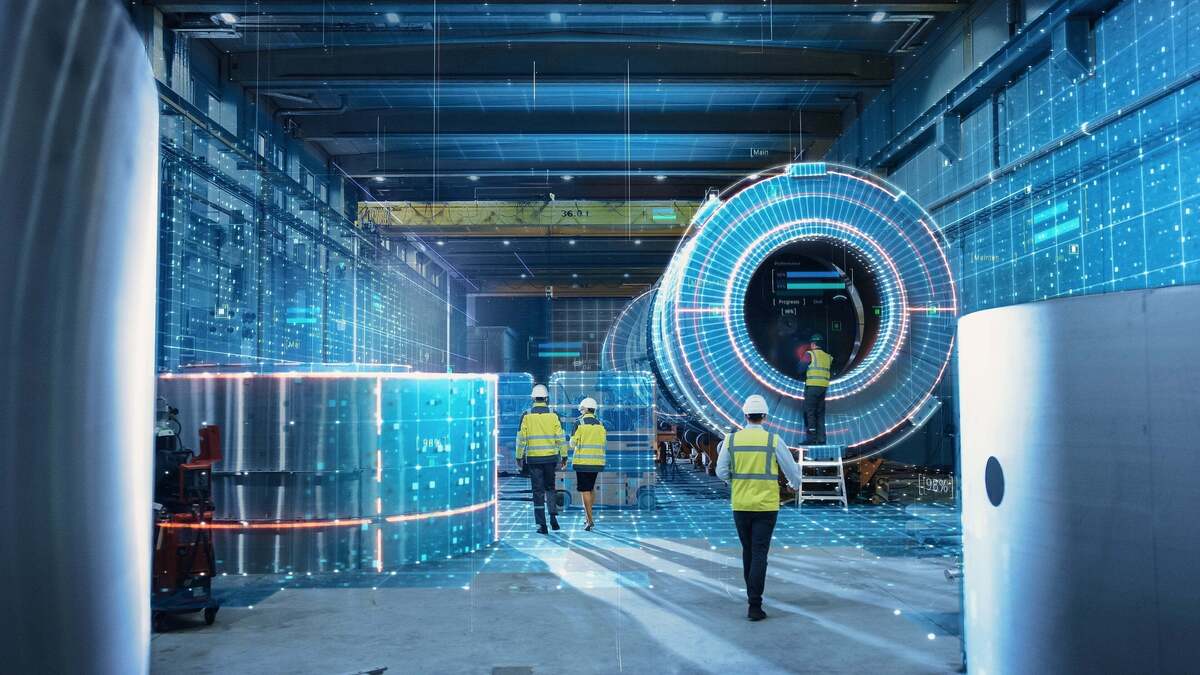Manufacturing firms are already investing in a range of technologies that could serve as the building blocks for the industrial “metaverse,” but the end goal of fully interconnected, immersive environments is likely to take longer to realize.
The metaverse concept has been used in recent years primarily to describe the development of a 3D internet, referring to virtual environments used mostly — so far — for entertainment. The concept has gained traction in the industrial sector specifically, where it’s used as an umbrella term for various existing technologies that can be combined to digitally replicate real-world objects and processes.
The idea is that accurate simulations of factory equipment, for example, would allow manufacturing and other industrial firms to optimize operations without disruption, improve collaboration for staff and external partners, and enhance frontline employee training. As with the consumer vision of a 3D internet, the industrial metaverse concept is a work in progress.
A survey of 350 senior leaders at US manufacturing firms by consulting firm Deloitte and the Manufacturing Leadership Council (a division of the National Association of Manufacturers), found that almost all (92%) of manufacturing firms are already investing in those technologies that could serve as the foundation for an industrial metaverse. They include mature technologies such as cloud computing and analytics, alongside more leading-edge tools such as digital twins and virtual or augmented reality devices.
“For us, it’s the blending of multiple pieces together,” said Paul Wellener, a principal at Deloitte’s US Industrial Products & Construction practice. “We’re seeing that really starting to take place at scale.”
The majority of these are pilot projects, but some are using the metaverse-related technologies in earnest too, said Wellener: “We’re seeing a lot of adoption: more than experimentation.”
Deloitte
Percentage of industrial respondents now implementing or experimenting with metaverse technology.
For example, digital twins, 3D modelling and 3D scanning have been “implemented and integrated” by a combined total of 33% of firms, the survey indicated. Additionally, 29% are at the experimentation stage.
Manufacturing production is the primary area of focus currently. Investments here tend to center on real-time monitoring and digital twins (implemented by 33%, with a further 24% experimenting here), process simulation (30% implemented and 29% experimenting), virtual prototyping (23% and 23%) and factory simulation (20% and 26%).
Other areas of focus include the “talent” ecosystem, such as immersive training and virtual plant tours; supply chain management and logistics; and customer facing systems, such as immersive customer experiences, virtual maintenance and virtual aftermarket services.
For example, digital twins, 3D modeling, and 3D scanning have been “implemented and…
2023-09-21 18:00:04
Original from www.computerworld.com rnrn



















